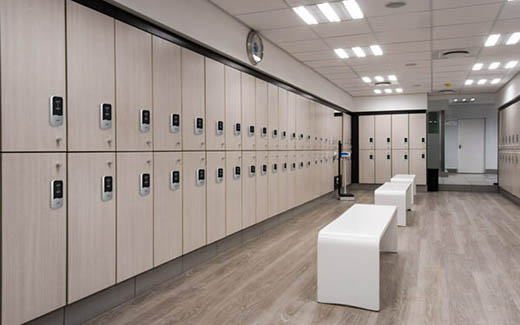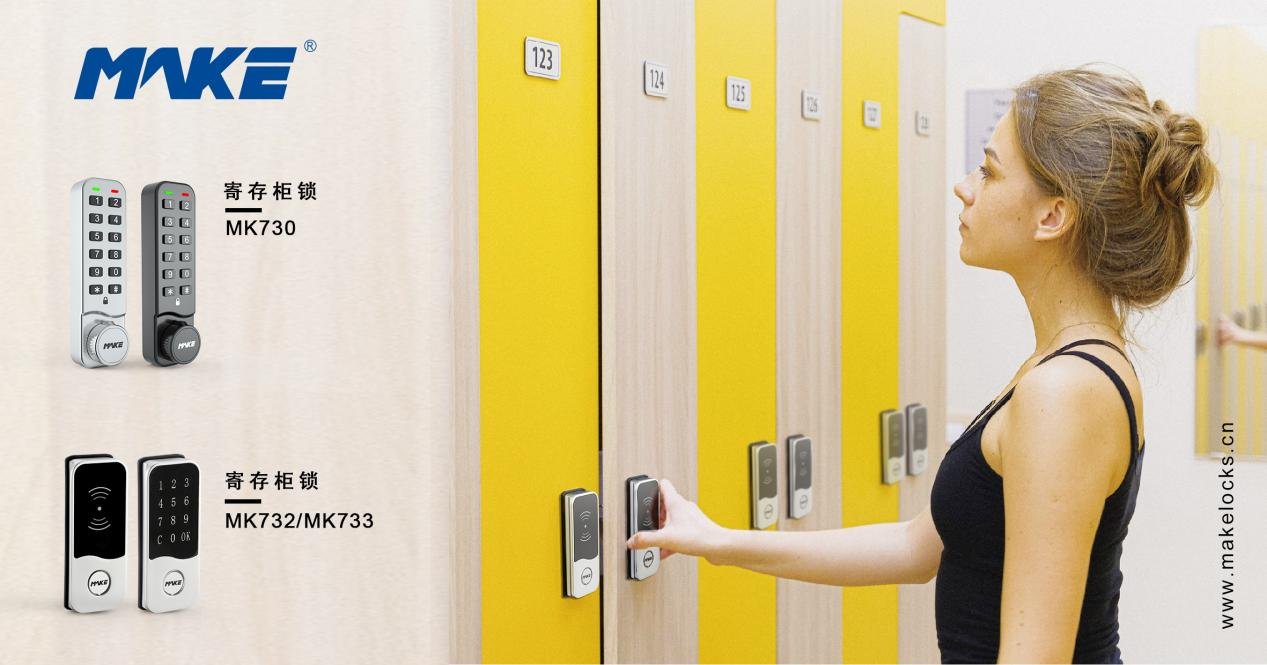Multi-dial
The simplest combination lock, commonly found in bicycle locks with low security settings, uses multiple dials. There is a recess in the middle of each circle. There are several protruding teeth on a shaft in the center of the lock to hold the dial ring. When the dial turns to the correct combination, the lock can be opened. This kind of lock is the easiest to open. Many of these locks can be opened without knowing the password. Unless its internal components are made flawlessly, as long as the shaft is pulled out, one of the teeth will tighten the dial ring more tightly than the others. At this time, turn the tightened dial ring until a small “click” sound is heard, indicating that the tooth has entered the correct recess. Repeat this step and the lock will be released soon.

Turntable
The combination lock used on the padlock or cassette can have only one turntable. The turntable pushes several balance discs or cams on the back. It is customary to turn the dial clockwise to the first number when opening this lock, then to the second number counterclockwise, and so on to the last number. There are usually recesses on the cam. When the correct code is entered, the positions are aligned and the lock can be opened.
This kind of combination lock is safer, but it is not without its drawbacks. For example, some password padlocks can tighten the lock head and then turn the dial until it can no longer move, so that the password can be found. There are also specific relationships between the numbers of some turntable code locks, which greatly reduces the possibility of the combination of codes. Inexpensive combination padlocks can be opened with special linings without the use of passwords.
The structure of the combination lock used on the box is relatively strict. An experienced locksmith can turn the dial while using the earpiece to carefully listen to the sound of the cam inside the lock to determine the possible code.
mechanical
Mechanical code locks are relatively stable, durable, and do not require power supply. However, the operation method is slow to learn, the operation is inconvenient, and the password modification requires professionals.

Electronic
The electronic code lock has the advantages of quick operation, simple and random modification of the code, and the lock can be unlocked only by entering the numbers 0-9. Although the price of electronic code locks has fallen in recent years, and the quality has improved, because of its complexity, the stability and durability are not as good as mechanical codes.
Swipe
The swipe type code lock can use your own IC card to open the safe door. The operation is simple, but the requirements for the IC card are relatively high. If it comes in contact with a strong magnetic object, the IC card may weaken its magnetism and cannot open the code lock.

Fingerprint
It is difficult to find the same fingerprint in this world, so fingerprint recognition technology is applied to the safe, which is highly confidential and easy to use. However, the opponent’s dry and humidity requirements are stricter! The recognition of the position of the finger is also relatively dull! Even if it is the same finger, if the position before inputting the fingerprint is different from that before opening the door, the recognition may fail!
Other
Some door locks have a numeric keypad, and when they are opened, type a series of numbers in sequence. This type of lock is electronically controlled and is commonly found in office rooms. The advantage is that just tell the employee the password, no need to copy the key. However, if someone tells an outsider the password, the lock becomes useless. Therefore, the password of this type of combination lock needs to be changed frequently. This kind of lock has a 3-6 digit password, which is extremely confidential.
 China best office furniture lock, locker lock CDM/OEM Manufacturers – Make Lock Copmany
China best office furniture lock, locker lock CDM/OEM Manufacturers – Make Lock Copmany
